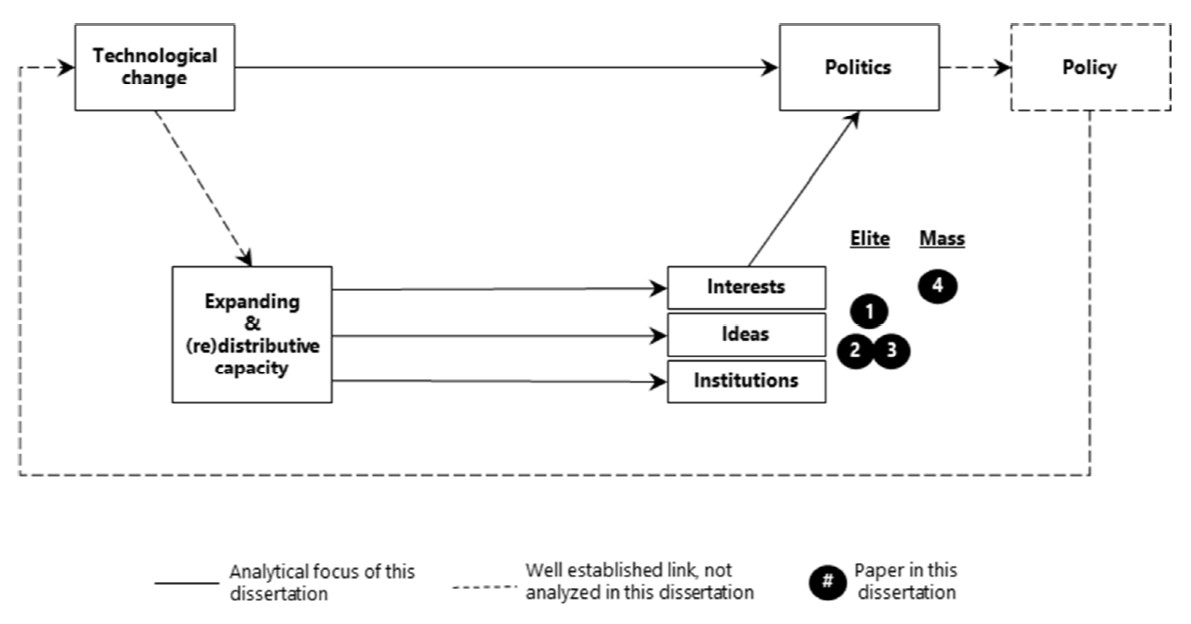Interested in how the #transition to #renewable and #energy-efficient technologies shapes energy and climate #politics? 
 In my doctoral thesis - now publicly accessible: https://doi.org/10.3929/ethz-b-000447993 - I synthesized my work on this topic with @ETH_EPG. A thread
In my doctoral thesis - now publicly accessible: https://doi.org/10.3929/ethz-b-000447993 - I synthesized my work on this topic with @ETH_EPG. A thread

 In my doctoral thesis - now publicly accessible: https://doi.org/10.3929/ethz-b-000447993 - I synthesized my work on this topic with @ETH_EPG. A thread
In my doctoral thesis - now publicly accessible: https://doi.org/10.3929/ethz-b-000447993 - I synthesized my work on this topic with @ETH_EPG. A thread
1/12 Premise: A fast & deep transition to low-carbon technologies –particularly renewable energy and efficiency technologies– is the main lever to address climate change. Deployment of these technologies has grown significantly over the last years–largely thanks to public policy
2/12 2nd premise: Implementing and designing such public policy is an intrinsically political endeavor. An emerging literature at the intersection of public policy, political science, and innovation studies covers these aspects of energy politics.
3/12 Research gap: However, how technological change (transition to renewables) shapes these energy politics is not yet well understood. A systematic analysis of this effect of TC on politics is necessary to formulate politically feasible and effective energy and climate policy.
4/12 RQ: In an exploratory approach, this dissertation addresses this research gap with the following overarching question: How does low-carbon technological change affect energy politics? To answer this question, the cumulative dissertation is built on a heuristic framework:
5/12 In the framework, I argue that i) technological change can affect politics through both its expanding and (re)distributional capacity and ii) politics can be disaggregated into the categories of interests, ideas, and institutions, on the level of elite and mass politics
6/12 The four papers in the dissertation cover various elements of this heuristic framework and leverage a plurality of qualitative and quantitative methods, and individual case studies.
7/12 Focusing on how technological change affects the interests and ideas of elite politics, Paper 1 examines how the transition to renewable energy technologies influenced the composition and strength of advocacy coalitions in the German energy sector. https://doi.org/10.1111/psj.12365
8/12 Paper 2 focuses on aspects of ideas in elite politics, and examines how technological change drives regulators’ perceived feasibility of more stringent public and private regulation of energy efficiency technologies in the Swiss building sector. https://doi.org/10.1111/rego.1231
9/12 Focusing on ideas and institutions in elite politics, paper 3 (under review) examines how technological change affects the positions of political parties on energy technologies in Germany, France, and the United Kingdom.
10/12 Finally, paper 4 (2nd author, under review) examines interests in mass politics by focusing on how the decline in coal mining affects voting behavior in presidential elections in the United States. https://papers.ssrn.com/sol3/papers.cfm?abstract_id=3710589
11/12 Summary: Based on a mixed methods approach and systematic data collection, these four papers give novel empirical and theoretical insights into how technological change affects interests, ideas, and institutions in elite and mass energy politics.
12/12 Although I cannot thank each and every one that supported me these years, my special gratitude goes to the entire Energy Politics Group, especially my co-authors @ETH_EPG @LeoHaelg @floegli Sebastian and Irina, and @jonasmeckling for hosting my research stay at UC Berkeley!

 Read on Twitter
Read on Twitter






